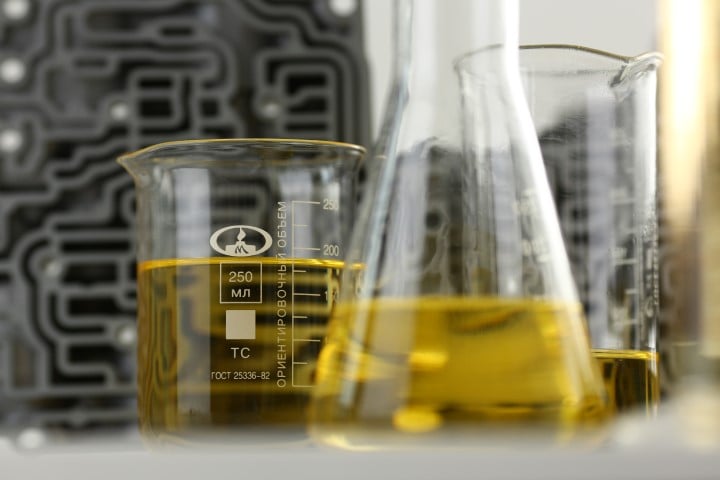Diesel Fuel Degradation in Storage - the Signs
It's a real shame when a storage tank fuel of expensive fuel "degrades" and starts to lose its quality. Whether it's from oxidation, hydrolysis, or...

Clogged diesel fuel filters are one of those canary-in-the-coal-mine problems. Filters don't clog by themselves. On a simple level, if the fuel filter gets clogged earlier than it normally does, it means filterable particulates passing through the filter are higher than they should be. This implies that there may be something going on in the fuel that’s causing this to happen.
What are the most likely culprits when diesel fuel filters clog at an abnormally high rate?
Today’s ultra-low sulfur diesel fuels produce sludge and particulates at a markedly faster rate than the high-sulfur diesel fuels of the past.
The use of cracked feedstocks at the refinery and susceptibility to microbial activity (and its effects on fuel quality) are contributing factors to this.
Fresh diesel fuel that meets the D975 standard shouldn't contribute appreciably to the problem. But over time, today's diesel fuels will produce the kind of particulates that plug filters.
Speaking of microbial activity, ULSD has much less resistance to microbial activity than diesel fuels of the past. Part of this is due to a change in the fuel’s composition (less sulfur and lower aromatic components), some due to ULSD’s affinity for water. Also contributing to the situation is the fact that most diesel fuel today contains a little bit of biodiesel (which microbes love).
Microbial activity not only causes diesel fuel to become unstable and produce sludge and varnish at an accelerated rate but also produces biomass secretions that plug filters.
When we mention clogged diesel fuel filters, what kind of filters are we speaking of? Not all filters are affected equally by all things.
In the fuel distribution system, you’ve got filters for diesel fuel storage tanks and filters for diesel dispensing units. Both of these are vital elements of fuel filtration systems for taking out contaminants that may otherwise cause problems for the end user. This also means that abnormal change intervals can be a red flag that there may be something abnormal going on in the storage tank itself, the most likely place for stored fuel deterioration to take place.
Diesel fuel filters on engines are vital to protecting the engine from contamination. These filters are more sensitive than in years past because of the need to protect high-tech diesel engines from damaging particulates. Indeed, today’s filtration system to protect fuel pumps and injectors can take out 1000x more/smaller particles than previous versions, because particulates as small as 4 microns can damage these vital high-tech systems.
If you’re an end user and you have a clogged diesel fuel filter, obviously you have to replace it. If you’re in the supply chain and you (or your customers) are having these problems, you need to look at the factors in the stored fuel that are causing them. The things we mentioned earlier – sludge, particulate, microbial presence. A good fuel preventive maintenance program (including preventive applications of biocide and fuel stabilizer) can go a long way towards making sure you and your customers never reach the point of having to deal with these problems. Because it’s always more expensive and problematic to deal with the aftermath of these problems than it is to prevent them.
It's a real shame when a storage tank fuel of expensive fuel "degrades" and starts to lose its quality. Whether it's from oxidation, hydrolysis, or...
In its report released in 2016, the EPA reminded us that there are over 100,000 diesel fuel storage tanks across the country. That’s a lot of tanks...

For hospitals and critical use facilities, care and husbandry of emergency stored fuel is a hotter topic than ever before. You can’t treat stored...